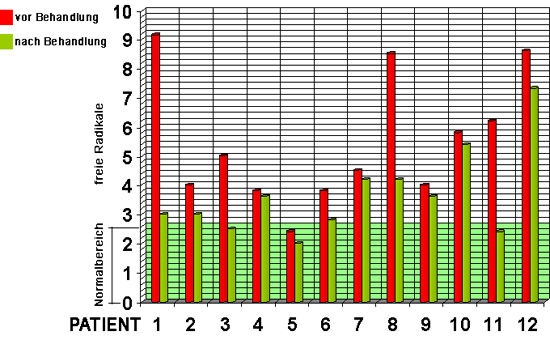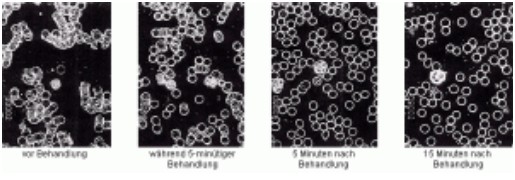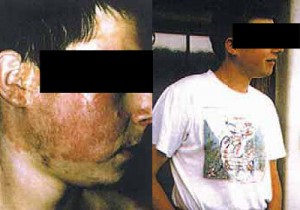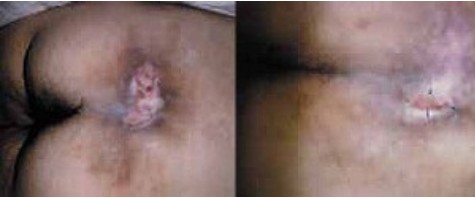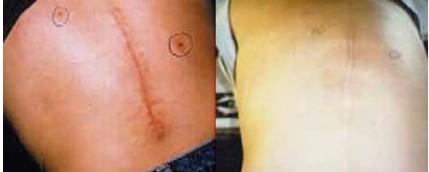.
Medical Results
Although deeper relaxation, pain relief, more energy, and better sleep can take effect within the first couple of days to weeks, the QRS is meant to be applied for an extended period of time to achieve long term health goals. From years of experience with the QRS we have learned that sometimes it takes three to four months for cholesterol values to improve, or even six months for calcium and magnesium balance to improve significantly. But don’t be discouraged; beneficial actions in the body are taking place – regardless! Therefore, PEMF treatment is not a quick fix; rather the QRS should be viewed as a long term health maintenance system.
Remember, the essence of the QRS’ electromagnetic fields is that they restore cell functioning, in order to allow the body to recover its own self-healing capabilities. The QRS should never be used as a replacement for professional medical treatment. Please consult your doctor before use. As of yet, no medical claims are made or implied concerning use or application in the USA.
Numerous scientific studies have shown the effectiveness of electromagnetic therapy such as with the QRS system. On this page we want to show you some examples with pictures. We also recommend to review our Research & Literature section for more in depth scientific information.
Thermographic images of dermal temperature
Results were obtained in a 43-year old patient with hypotension
The peripheral temperature increase was 1-6 degrees Celcius, indicating increased circulation, i.e. adjusted vasodilation
The systolic blood pressure changed under QRS treatment from 100 to 118, while the diastolic pressure increased from 58 to 72
Due to the treatment related increase of the peripheral blood volume, oxygen supply increases, and the transport of relevant energy carriers for the cells improved.Measurement free radicals
Measurement of free radicals in the capillary blood before and after 8 minutes QRS treatment. Performed in ‘La Torre’ clinic in Turin Italy. Note red bar is before and green bar is after QRS treatment.
Diagnosis: Poly arthritis
Patient with Poly arthritis starting in 1976 which turned in to severe since 1992. No significant improvement with aurotherapy and anti-analgesic medication.
QRS treatment: After 1 month of daily treatments there is significant pain reduction in joints and improvement in agility. After 3 months patient was able to gradually reduce and eventually stop medication and aurotherapy and cortisone was reduced by 60%.Diagnosis: Calcifying tendinitis of the shoulder
The female patient was on strong pain medication and was completely restricted from movement; local injections of cortisone brought little relief and surgery was recommended.
QRS treatment: After 8 days almost complete pain free when in resting state. After 14 days of daily QRS treatment the patient was able to move arms with pain being reduced by approximately 75% and pain medication was stopped.Dark-field microscopy:
Effect on the organism using QRS with a 55-year old thyroid cancer patient.
Diagnosis: Atopic Dermatitis
Since 1995, chronic relapsing changes of the skin, which affected the whole body; massive itching. Treatment: Intermittent internal doses of steroids and consistent application of cortisone ointments. After 6 months the symptoms were somewhat under control.
QRS treatment: Patient was off medication and the skin was free of eczema, from time to time individual spots. Patient experienced first winter without a flu.
Diagnosis: Sacral decubitus, appalic syndrom, respiratory infection
Due to the relapsing infection of the respiratory system, caused by the primary illness (total immobility) and the resulting bad circulation, a sacral decubitus developped, which showed no tendency to improve despite various therapy appraoches. Considering symptomatic epilepsy, QRS treatment was started with special attention.
QRS treatment: after 20 days hardly any respiratory infections, improvement of the sacral decubitus. After 4 months almost completely healed (very small superficial skin defect.Diagnosis: Decelaration wound healing after surgery of the 10th thoracic vertebra
After a skiing accident in March 1995, screws were surgically inserted because of fracture of the 10th thoracic vertebra. After 3 days a hip-bone transplantation was done. In January 1996 screws were removed. However, formation of moist gangrene in the wound, so another operation was necessary.
QRS treatment: After 3 days of QRS treatment moist gangree completely disappeared and after one week treatment there was a substantial reduction of back pain. After 4 weeks of QRS treatment patient experienced better digestion, improved sleep and more vitality.
| Home |
|
Benefits | Studies | Articles | Videos | FAQ | Models | Contact |


